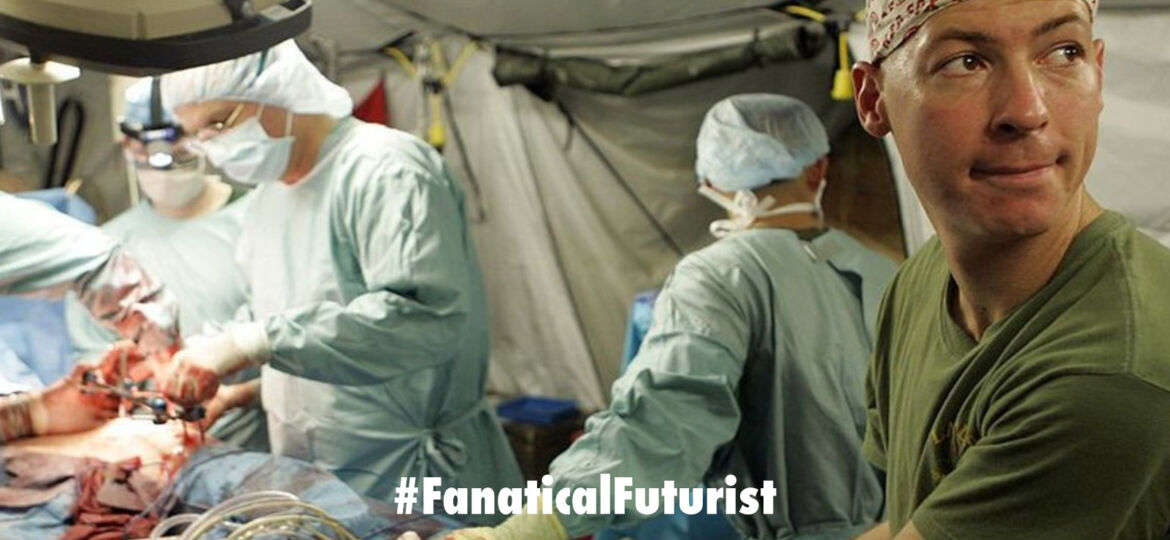
WHY THIS MATTERS IN BRIEF
Being able to monitor the health of soliders in battle will help keep them at peak efficiency, and military robot surgeons will help save lives on the battlefield.
Keeping soldiers healthy has always been a struggle but there may soon be a high tech solution after US Army Surgeon General, Lt. Gen. Nadja West, said she sees implantable monitoring devices, which could include everything from smart pills to nanobots and nanomachines, like these ones that can already kill cancer cells by drilling into them and these brain controlled nanobots that release drugs into the body, as be the future of military medicine. Furthermore, if these advances are combined with the US Army’s artificial blood program, and their Digital Soldier Project, things I’ve discussed recently, where the US Army makes detailed, digital cell level avatars of their soldiers before they’re deployed into battle, which will let them 3D print replacement human organs and tissue if they get injured by, for example, an IED, then saying that the future of health will be high tech could be an understatement.
West was speaking at the Association of the US Army in Arlington, Virginia, when she talked about the devices.
“We should be monitoring all soldiers, all the time, looking for patterns of injury or other signs for early detection,” she said, “we can do better when every soldier is a sensor, and we can continuously monitor information culled from them.”
The monitors, which would also include a gold chip in implanted in a soldier’s wrist, would have the capability to send out streams of detailed data on a soldier’s health, including blood sugar levels, oxygen levels, and even sleep data. West then says that this information could be used to decide to who to send on a mission, or to determine who isn’t ready for battle, and that’s not all.
She also added that the US Army has begun testing remote surgeries too, but here’s the rub – those remote surgeries aren’t being carried out by regular human doctors in the field, but robots. West believes that by receiving information from the implantable monitor, as well as other sensors in or around the soldiers body, surgeons, who could be anywhere on the planet, could use this information to command and guide surgical robots in the field, robots such as the famed Da Vinci robot which recently performed surgery on a pig…
Today over a quarter of combat deaths occur due to bleeding that a soldier or medic can’t stop in time, and West believes that remote robotic surgeries would allow soldiers in isolated areas to receive the care that they need following an injury quickly. She also went on to add that these kind of surgeries have already been tested at Fort Campbell, using doctors stationed at the Fort in Kentucky, via a satellite hookup with soldiers in a remote area, and she also added that the army plan to roll more of these robotic surgeries out in the future, an announcement that comes off the back of another recent announcement that the US Army has created its first virtual medical center at Brooke Army Medical Center in Texas.

















[…] the Da Vinci robot that took the US by storm, to the US Army’s first tentative trials of remote robot surgeries in the battlefield, and the development of the world’s fastest neurosurgery robot that is fifty times faster than […]